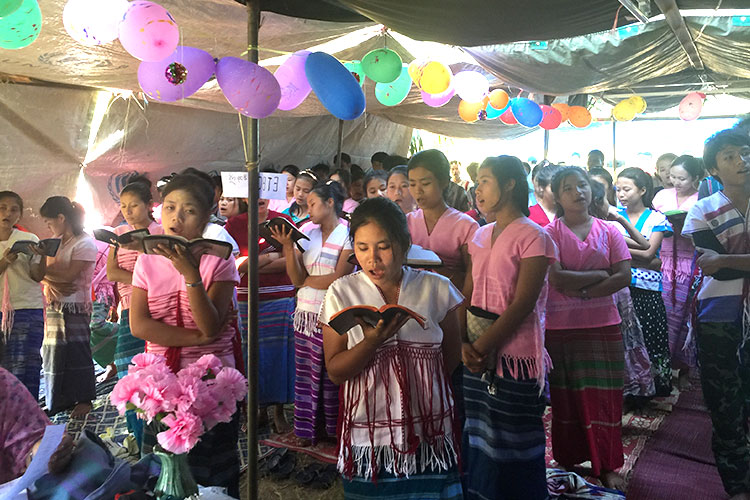
Religion
“Religion is far more important for most Karen than it is for most Westerners. Religion is not just a matter of belief: religion may determine, or be determined by, who somebody marries, the school they go to, or whether they are resettled or whether they remain in a refugee camp.” (Karen Buddhist Dhamma Dhutta Foundation, 2010, p. 25)
The Karen have five known religious beliefs: Animism, Buddhism, Christianity, the Lehkai, and Telahkon. Of these five, the majority of Karen are Animist, Buddhist, or Christian. There are many Karen refugees who are Christian in the United States. Also common are Karen Muslims of Indian decent. They are badly oppressed in Burma and call themselves “Knyaw Thoo” or “Black Karen.” However, they often identify their ethnicity as “Muslim.”
There is substantial interchange between Buddhist practices and animist rituals among the Karen. Animists believe in helpful female, guardian spirits called Ther Myng Khae, the “lord of land and water,” including beliefs in animist rituals and beneficial or malicious ghosts. Villages tend to be predominantly one of the three religions (Buddhists, Animists, or Christians). There are a diverse number of houses of worship in the towns or villages.
Religious diversity is important to the Karen. In the past, a Buddhist group broke with the Christian leadership and associated with the Burmese military. As a result, Christian and Buddhist Karen engaged in armed conflict against each other. Now the Karen believe religion can be an opportunity for change, uniting all Karen despite a difference in beliefs and values.


 (651)788-7593
(651)788-7593


